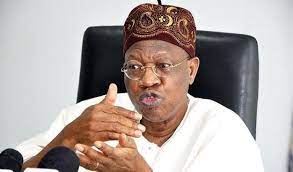FG asks Google to delete and block proscribed groups
Global internet company, Google and the Federal Government are collaborating to curb the excesses of subversive YouTube channels, being used to spread misinformation and hate speech against Nigeria.
Alhaji Lai Mohammed, the Minister of Information and Culture, said this on Thursday in Abuja when a Google delegation paid him a courtesy visit. He expressed his happiness that Google and the Federal Government both had the same concerns about using social media responsibly.
The minister stated that “Google platforms should not allow channels and emails containing names of proscribed groups and their affiliates.”
He expressed delight that both the Federal Government and Google shared the same concern on the responsible use of social media.
“We want Google to look into how to tackle the use of private and unlisted YouTube channels and YouTube live streams by proscribed groups and terrorist organisations.
“Channels and emails containing names of proscribed groups and their affiliates should not be allowed on Google platforms,” the minister said. The minister stated that Google had become a platform of choice for the Indigenous People of Biafra, which he described a proscribed terrorist group.
The minister claimed that the Indigenous People of Biafra, which he called a terrorist organisation outlawed, had chosen Google as their platform of choice.
Mohammed pleaded with the tech giant to forbid IPOB from using its platform for its violent and destabilising activities. With over 100 million Internet users, he claimed that Nigerians are some of the world’s most active social media users. Nigerians can interact, share ideas, make a living, and take part in social and political affairs thanks to internet platforms like Google, Facebook, TikTok, Twitter, and WhatsApp, he continued.
However, the minister pointed out that dishonest individuals or organisations also use these platforms for nefarious and subversive activities. In an effort to establish a framework for cooperatively protecting Nigerian users of Internet platforms, Mohammed claimed that the Nigerian government recently proposed a “Code of Practice for Interactive Computer Service Platforms/Internet Intermediaries.”








